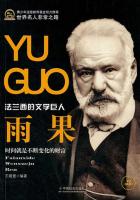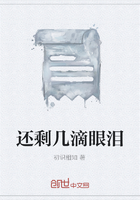The French army lay before a fortified place near the Rhine, which we will call Philipsburg.
This army knew Bonaparte by report only; it was commanded by generals of the old school.
Philipsburg was defended on three sides by the nature of the ground;but on the side that faced the French line of march there was only a zigzag wall, pierced, and a low tower or two at each of the salient angles.
There were evidences of a tardy attempt to improve the defences.In particular there was a large round bastion, about three times the height of the wall; but the masonry was new, and the very embrasures were not yet cut.
Young blood was for assaulting these equivocal fortifications at the end of the day's march that brought the French advanced guard in sight of the place; but the old generals would not hear of it; the soldiers' lives must not be flung away assaulting a place that could be reduced in twenty-one days with mathematical certainty.For at this epoch a siege was looked on as a process with a certain result, the only problem was in how many days would the place be taken; and even this they used to settle to a day or two on paper by arithmetic; so many feet of wall, and so many guns on the one side;so many guns, so many men, and such and such a soil to cut the trenches in on the other: result, two figures varying from fourteen to forty.These two figures represented the duration of the siege.
For all that, siege arithmetic, right in general, has often been terribly disturbed by one little incident, that occurs from time to time; viz., Genius INside.And, indeed, this is one of the sins of genius; it goes and puts out calculations that have stood the brunt of years.Archimedes and Todleben were, no doubt, clever men in their way and good citizens, yet one characteristic of delicate men's minds they lacked--veneration; they showed a sad disrespect for the wisdom of the ancients, deranged the calculations which so much learning and patient thought had hallowed, disturbed the minds of white-haired veterans, took sieges out of the grasp of science, and plunged them back into the field of wild conjecture.
Our generals then sat down at fourteen hundred yards' distance, and planned the trenches artistically, and directed them to be cut at artful angles, and so creep nearer and nearer the devoted town.
Then the Prussians, whose hearts had been in their shoes at first sight of the French shakos, plucked up, and turned not the garrison only but the population of the town into engineers and masons.
Their fortifications grew almost as fast as the French trenches.
The first day of the siege, a young but distinguished brigadier in the French army rode to the quarters of General Raimbaut, who commanded his division, and was his personal friend, and respectfully but firmly entreated the general to represent to the commander-in-chief the propriety of assaulting that new bastion before it should become dangerous."My brigade shall carry it in fifteen minutes, general," said he.
"What! cross all that open under fire? One-half your brigade would never reach the bastion.""But the other half would take it."
"That is not so certain."
General Raimbaut refused to forward the young colonel's proposal to headquarters."I will not subject you to TWO refusals in one matter," said he, kindly.
The young colonel lingered.He said, respectfully, "One question, general, when that bastion cuts its teeth will it be any easier to take than now?""Certainly; it will always be easier to take it from the sap than to cross the open under fire to it, and take it.Come, colonel, to your trenches; and if your friend should cut its teeth, you shall have a battery in your attack that will set its teeth on edge.Ha!
ha!"
The young colonel did not echo his chief's humor; he saluted gravely, and returned to the trenches.
The next morning three fresh tiers of embrasures grinned one above another at the besiegers.The besieged had been up all night, and not idle.In half these apertures black muzzles showed themselves.
The bastion had cut its front teeth.
Thirteenth day of the siege.
The trenches were within four hundred yards of the enemy's guns, and it was hot work in them.The enemy had three tiers of guns in the round bastion, and on the top they had got a long 48-pounder, which they worked with a swivel joint, or the like, and threw a great roaring shot into any part of the French lines.
As to the commander-in-chief and his generals, they were dotted about a long way in the rear, and no shot came as far as them; but in the trenches the men began now to fall fast, especially on the left attack, which faced the round bastion.Our young colonel had got his heavy battery, and every now and then he would divert the general efforts of the bastion, and compel it to concentrate its attention on him, by pounding away at it till it was all in sore places.But he meant it worse mischief than that.Still, as heretofore, regarding it as the key to Philipsburg, he had got a large force of engineers at work driving a mine towards it, and to this he trusted more than to breaching it; for the bigger holes he made in it by day were all stopped at night by the townspeople.
This colonel was not a favorite in the division to which his brigade belonged.He was a good soldier, but a dull companion.He was also accused of hauteur and of an unsoldierly reserve with his brother officers.
Some loose-tongued ones even called him a milk-sop, because he was constantly seen conversing with the priest--he who had nothing to say to an honest soldier.














